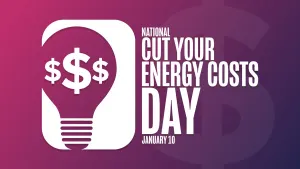What do buying a new home and hurricane season have in common?
It may not be the first thing on your mind, but it is important to know how to prepare yourself and your new home.
•
Jun 2, 2021, 7:41 PM
•
Updated 1,550 days ago
Share:
More Stories

Does a Big Screen TV Mean Big Energy Bills?
1,298ds ago
“Weather” it’s six more weeks of winter or an early spring we’ve got you covered
1,305ds ago
Money and energy saving tips for the new year
1,328ds ago
Get smart with your gift list
1,353ds ago0:11

Enjoy a delicious - and energy saving - meal this Thanksgiving with these tips from PSEG LI
1,375ds ago1:11

PSEG Long Island steps up support for veterans throughout November
1,387ds ago
Does a Big Screen TV Mean Big Energy Bills?
1,298ds ago
“Weather” it’s six more weeks of winter or an early spring we’ve got you covered
1,305ds ago
Money and energy saving tips for the new year
1,328ds ago
Get smart with your gift list
1,353ds ago0:11

Enjoy a delicious - and energy saving - meal this Thanksgiving with these tips from PSEG LI
1,375ds ago1:11

PSEG Long Island steps up support for veterans throughout November
1,387ds ago
The content below has been provided by PSEG Long Island and has no editorial input from News 12 Long Island.
Buy a new home recently; maybe you’re first home? Bet while you’re picking out furniture and envisioning your completed home you didn’t stop to think about … hurricane season. It may not be the first thing on your mind, but it is important to know how to prepare yourself and your new home.
Hurricane season starts June 1 and lasts through November. Check out these ways you can prepare.
Get to know your utility company
PSEG Long Island always is here for you, to keep the lights in your home on. In the chance of a strong storm or hurricane that may knock out your power, we offer five ways to report outages.
1. Download PSEG Long Island’s mobile app for Android or Apple devices, which allows customers to manage their accounts on the go.
2. Just say … “Hey Alexa” or “Hey Google!” Both of these voice technologies allow you to report your outage (and do other fun things) via the apps on your smartphone.
3. Sign up for My Account to report power outages, pay your bill online, schedule service appointments, live chat, email us and more. Visit psegliny.com/myaccount to get started.
4. Sign up for MyAlerts to report outages via text. It also allows us to get in touch with you when storms are on their way and send updates about the status of your outage. And that’s not all, you can pay your bill, receive bill reminders and check your account via text, too.
5. Not tech savvy? There’s always the option to speak with a live representative or report through our automated prompts when you give us a call at 1-800-490-0025.
You also can follow us on Facebook, @PSEGLI, and Twitter, @PSEGLI, for the latest storm updates, news, tips and more!
Get to know your property
Strong winds and storms can take down tree branches, bringing utility lines with them. While we travel our communities pruning trees to avoid power interruptions, we ask that you also do your part to help keep the lines safe. If you are looking to plant new trees, plant the right tree in the right place. Check out our guide to learn what trees require less pruning, provide energy efficiency for your home and are safe near our utility lines.
We work hard year round to keep power on, but you always should be prepared in case power goes out. If you plan to use a generator, now is a good time to test it out and learn where the best placement is. Never run a generator in an enclosed space like your home or garage, as it can cause carbon monoxide build up. Check out our website or more info on generator safety.

Get to know your neighbors
Storms happen, whether you are home or not. Now is a good time to get to know your neighbors and exchange information so that you can help each other in the event of an emergency. If power goes out and you’re not home, they can notify you. With that said, never assume someone else has reported the outage, always report an outage as soon as you can.
Take a look at flood zone maps
Floodwaters often conceal hazards that are not immediately obvious – and some of them can be deadly. If you notice your property beginning to flood, unplug all appliances and shut off the natural gas supply valve to any gas appliances – but be sure to do so before there’s any water touching them. Pools of water may become electrically charged. Appliances in standing water also may become charged, so do not touch them after they have become surrounded by water. If you are leaving your house during a flood, remember that all downed power lines are dangerous and should be avoided. Stay at least 30 feet away from all downed wires and keep others from going near them, as well. Also avoid everything that may be touching the downed wires, utility pole or water surrounding them. Log in to My Account or call 1-800-490-0025 or 911 immediately to report downed wires . Once water recedes, if the natural gas was shut off at the meter, do not try to turn it back on yourself.
More from News 12
1:38

Babylon restrictions keep Katch relatively quiet on Labor Day weekend
1:56

Pleasant Sunday on Long Island ahead of comfortable Labor Day
0:45

Man accused of stabbing person during argument in Babylon
0:28

Man charged in deadly Wyandanch hit-and-run
0:19

3 employees arrested in Mastic massage parlor raid
2:00
